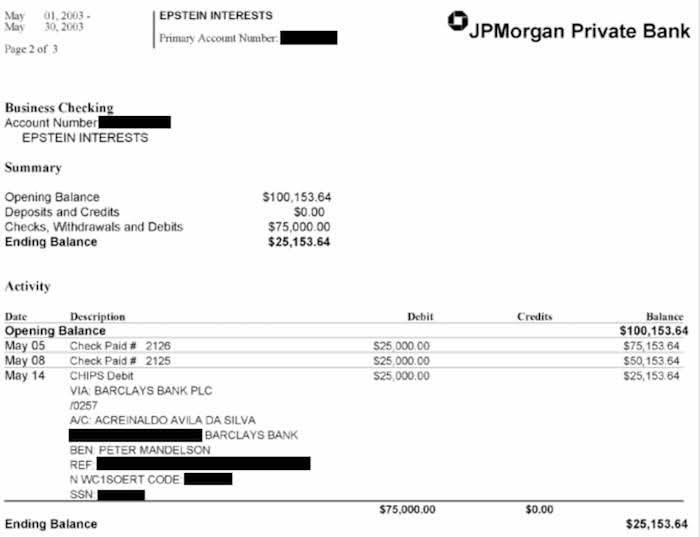Politics
Pembrokeshire heads to the polls

THE ELECTIONS to the Welsh Parliament/Senedd Cymru take place today, Thursday (May 6).
Over the last few weeks, we’ve published a guide to the manifestos of each of Wales’ principal parties.
Next today is the crunch and after that comes the business of forming a government.
But first, voting.
HOW TO VOTE
Wales has a combination of voting systems.On Thursday, May 6, you will have two ballot papers for the Senedd. One for your constituency, the other for your region.X in the box against your candidate for the constituency.X in the box for the party you want on the regional list.Forty constituency seats, with the same boundaries as the Westminster election constituencies, elect one member each through first past the post.
The winners of constituency seats don’t need most of the votes, only one more than the candidate in second place.
Twenty further Members of the Senedd are elected on a regional list system.
Wales is divided into five regions, each of which returns four Senedd members.The regions are: Mid & West Wales; North Wales; South Wales Central; South Wales East; South Wales West.
The parties prepare a list of candidates in their own order of preference.
The system supposedly balances the risk of a one-party state by balancing constituency success against votes cast for parties.
THE REGIONAL LIST
If a party is electorally successful in the constituency vote, it starts with a handicap in the regional count.
The formula is complex, but it basically divides the total number of regional votes by one plus the number of constituencies won. Successive rounds of counting then divide the regional vote by one plus the number of constituencies plus any regional seat won in the preceding round.
After four rounds of counting, you have four Senedd Members for the region.
Labour had two regional seats in Mid and West Wales after the 2016 election only because it performed dismally in Mid and West Wales’ constituencies.
If the Labour vote collapses in Mid and West Wales, after this election it might return only one MS to Cardiff. In that case, the lucky winner would be Eluned Morgan.
Ironically, if Plaid Cymru wins Llanelli it will almost certainly lose its regional seat – unless other parties’ regional vote falls and Plaid’s significantly increases.
The Liberal Democrats held one seat in Mid and West Wales last time out, Brecon and Radnor. That success cost William Powell (number one on the candidate list for the LibDems in 2016) a seat. The Liberal Democrats were in poll position for a second seat after the regional votes were counted.
However, in the final round of counting, UKIP’s abject failure in Mid and West Wales’ constituencies combined with regional votes from Pembrokeshire gifted Cardiff Bay with Neil Hamilton’s contrarian presence.
That fact underlines the regional votes’ importance.
FIRST TIME VOTERS
The unknown in this election is the number of first-time voters since the franchise’s expansion to sixteen and seventeen-year-olds. Younger voters tend to be less tribal and more single-issue driven.
If young voters turn out in numbers, there could be a significant swing towards parties that address issues of importance to them in a way that appeals to younger voters.
The likely beneficiaries would be parties closely connected to environmental issues – or at least those who claim to be.
At this point, young voter turnout could be disappointingly low. The last school year was meant to educate prospective young voters about the coming election. Thanks to the pandemic, that fell by the wayside.
In the future, Civics’ presence in the school curriculum is vital. Schools must give students an understanding of how government works, the importance of democracy and citizens’ duty to engage with it.
WHERE WILL UKIP VOTES GO?
The second question is where UKIP’s votes will end up. The Party’s membership, support, and electoral profile have withered along with its momentary political relevance.
Although Pembrokeshire might again buck the regional trend, it’s unlikely UKIP will cross the threshold to get a seat in Mid and West Wales.
Abolish the Assembly (sic.) superficially appears the most attractive party for those who backed UKIP on the regional list last time out. However, the longer the campaign has gone on, the more Abolish has faded. An ITV interview with its leader, Richard Suchorzewski, was truly cringe-inducing.
After saying he respected Wales as a country, Mr Suchorzewski didn’t have an answer when asked to name another country without a parliament.
It was embarrassing to watch and, whether you feel Wales needs/deserves a separate Parliament or not, dire.
With Andrew RT Davies in charge, the Conservatives have burnished their ‘BluKip’ credentials. However, their campaign is endangered by the impression that a Welsh Conservative government would be operated from Westminster and not Wales, with Simon Hart as de facto Governor-General.
It’s a tricky line for the Conservatives to tread. However, if the Conservatives pick up UKIP votes, as well as get their existing regional voter base to turn out -as they did in December 2019 – Tomos Dafydd could pick up a Mid and West regional seat for the Party.
VOTING IS WHAT COUNTS
There are plenty of opportunities to vote on the regional and constituency lists to register what’s called ‘a protest vote’.
Protesting in silence on election day by not voting and complaining for the next five years is an empty and futile gesture.
It’s objectively more important TO vote than HOW you vote.
Voting is what counts.
Nothing else matters in an election.
It’s a few minutes out of your lives and can change Wales.
Crime
Welsh Lib Dems urge ministers to rethink rates relief for struggling pubs and cafés

Calls grow for Welsh Government to match support offered to English venues
THE WELSH LIBERAL DEMOCRATS have urged the Welsh Government to review its business rates policy, warning that scaling back support for pubs and hospitality risks further closures across towns and villages.
Party leader Jane Dodds, who represents Mid and West Wales in the Senedd Cymru, said ministers should act quickly to protect local venues after additional support for pubs and music venues was announced for England by the UK Government.
The measures announced by the Chancellor do not automatically apply in Wales, leaving uncertainty over whether similar help will be introduced here.
Hospitality businesses across Pembrokeshire and Carmarthenshire have already reported rising energy bills, higher wage costs and reduced footfall since the pandemic. From April, current business rates relief is expected to be reduced, a move the Liberal Democrats say could place Welsh firms at a disadvantage compared with competitors over the border.
Dodds said that pubs, cafés and restaurants form “the heart of our communities” and warned that withdrawing relief now would be “a serious mistake”.
She told the Senedd that support “cannot stop at pubs alone” and should extend to the wider hospitality sector, including restaurants and family venues that rely heavily on seasonal trade and tourism.
“When questioned, the First Minister said she needed to examine the details of the English package before committing to anything similar for Wales,” Dodds said. “Without urgent action, we risk losing viable, well-loved businesses that communities simply cannot afford to lose.”
The party is also calling for UK-wide action, including a temporary reduction in VAT for hospitality and tourism, funded by a windfall tax on large banks.
However, Welsh Government sources have previously argued that decisions on rates relief must be balanced against pressures on public finances, with ministers required to prioritise health, education and other frontline services within a fixed budget. They have said any additional support would need to be affordable and targeted.
Industry bodies have echoed concerns about the challenges facing the sector. Trade groups say many independent pubs and cafés continue to operate on tight margins, particularly in rural areas where they serve as community hubs as well as businesses.
Local operators say clarity is now key, with decisions on staffing, stock and opening hours often planned months in advance.
With the next financial year approaching, hospitality owners will be watching closely to see whether Wales mirrors England’s support – or leaves businesses to absorb the extra costs alone.
international news
Mandelson quits Labour over Epstein controversy

Former cabinet minister says stepping down is ‘in best interests of the party’ as questions raised over historic payments
LORD MANDLESON has resigned his membership of the Labour Party, saying he does not want to cause “further embarrassment” following renewed controversy over his past links to convicted sex offender Jeffrey Epstein.
The former cabinet minister and one-time UK ambassador to the United States confirmed his decision in a letter to Labour’s general secretary after fresh documents released by the US Department of Justice appeared to reference him in connection with Epstein’s finances.
The files suggest that three payments of $25,000 — totalling $75,000, about £55,000 at today’s exchange rates — were allegedly made to Peter Mandelson in 2003 and 2004.
Lord Mandelson said he had “no record or recollection” of the transactions and believes the allegations may be false, but intends to investigate the matter himself.
In his resignation letter, he wrote that he felt “regretful and sorry” to be linked again to what he described as the “understandable furore” surrounding Epstein.
He added that stepping down from party membership was the responsible course of action while he reviewed the claims.
“I do not wish to cause further embarrassment to the Labour Party,” he said. “I have dedicated my life to the values and success of the party and believe I am acting in its best interests.”
Ambassador role ended
Lord Mandelson had been appointed the UK’s ambassador to Washington by Prime Minister Keir Starmer in December 2024.
However, he was removed from the post last year after earlier revelations about his past friendship and contact with Epstein, including emails showing communication after the financier’s 2008 conviction.
The latest release of files has also included photographs said to show Lord Mandelson alongside an unidentified woman. He said he could not place the location or circumstances of the images.
There is no suggestion that appearing in the documents or photographs indicates criminal wrongdoing.
‘Deep regret’
Earlier this weekend, Lord Mandelson reiterated his regret for ever having known Epstein and apologised “unequivocally” to the women and girls who suffered abuse.
“I want to repeat my apology to the women and girls whose voices should have been heard long before now,” he said.
Epstein died in prison in 2019 while awaiting trial on sex trafficking charges, but investigations into his network of associates continue to generate political fallout on both sides of the Atlantic.
Labour has not yet issued a detailed statement beyond confirming it had received Lord Mandelson’s resignation.

News
Policing powers stay with Westminster as devolution debate reignites in Wales

THE UK GOVERNMENT has ruled out handing control of policing and criminal justice to Wales, triggering fresh political debate over whether the Senedd should ever take responsibility for law and order.
South Wales Central Conservative MS Andrew RT Davies said ministers were “right” to block further devolution, warning that separating Welsh forces from England would weaken efforts to tackle organised and cross-border crime.
His comments follow an exchange in the House of Commons, where Liz Saville-Roberts pressed the Home Secretary on transferring powers to Cardiff Bay. The Government confirmed it does not believe policing and criminal justice should be devolved.

“Must reflect the reality on the ground”
Mr Davies said proposals from Plaid Cymru and other devolution campaigners ignore how crime and communities operate in practice.
“The Senedd must not be put in charge of policing,” he said.
“Senedd ministers have an appalling track record on law and order. As senior police officers say, reforms must reflect the reality that many Welsh communities look east towards England far more than they do to other parts of Wales.”
Senior officers have echoed that concern.
Amanda Blackman, Chief Constable of North Wales Police, recently said her force area is “very much connected from a criminality perspective” to Merseyside and Cheshire.
“Our population move, if you like, is more east to west, west to east than it is north to south,” she said, pointing to the daily flow of commuters, shoppers and offenders across the border.
Long-running constitutional argument
Wales currently has four territorial forces – Dyfed-Powys, South Wales, Gwent and North Wales – but funding, legislation, prisons and the courts all remain under Westminster control.
Supporters of devolution argue this creates a “jagged” system, where services like health, housing and education are run by the Senedd but justice is not.
Plaid Cymru has repeatedly called for Wales to follow Scotland and Northern Ireland, both of which run their own justice systems.
They say decisions made in Cardiff could better reflect Welsh priorities, invest more in prevention, and link policing with mental health, youth services and social care.
A Plaid source said: “Communities in Wales should not have to rely on London to decide how their streets are policed. Justice should sit alongside the other services that deal with the causes of crime.”
Cost and complexity concerns
But critics warn that splitting away from England could come at a high price.
Establishing a separate legal and prison system would mean new administrative structures, courts oversight, inspection bodies and funding arrangements.
There are also practical questions around serious organised crime, counter-terrorism and specialist units that currently operate across England and Wales.
Former policing leaders have previously cautioned that criminals do not respect borders, and intelligence-sharing could become more complicated if systems diverge.
For rural areas such as Mid and West Wales, including Pembrokeshire, officers often work closely with English counterparts on drugs, county lines and cross-border burglary gangs.
Little appetite for change – for now
With the current Government making clear it has no plans to devolve the powers, the issue appears unlikely to change in the short term.
However, with constitutional reform regularly debated ahead of future elections, policing remains a live political question.
For now, responsibility for law and order stays firmly with Westminster – but the argument over who should control Wales’ justice system looks set to continue.
-

 Health4 days ago
Health4 days agoConsultation reveals lack of public trust in health board
-

 News6 days ago
News6 days agoCaldey still unsafe, survivors warn — despite Abbey’s reform claims
-

 Community5 days ago
Community5 days agoPembrokeshire students speak at national Holocaust Memorial Day event
-

 News5 days ago
News5 days agoKurtz raises Gumfreston flooding in the Senedd as petition deadline nears
-

 Community7 days ago
Community7 days agoStorm Chandra: Morning impacts across Pembrokeshire
-

 Entertainment6 days ago
Entertainment6 days agoRapunzel brings festive magic to Torch Theatre
-

 Crime6 days ago
Crime6 days agoMan denies murdering brother as jury hears of ‘ferocious attack’ at Morriston flat
-

 Education5 days ago
Education5 days agoAttendance concerns at Milford School reflect wider issue raised at the Senedd
































